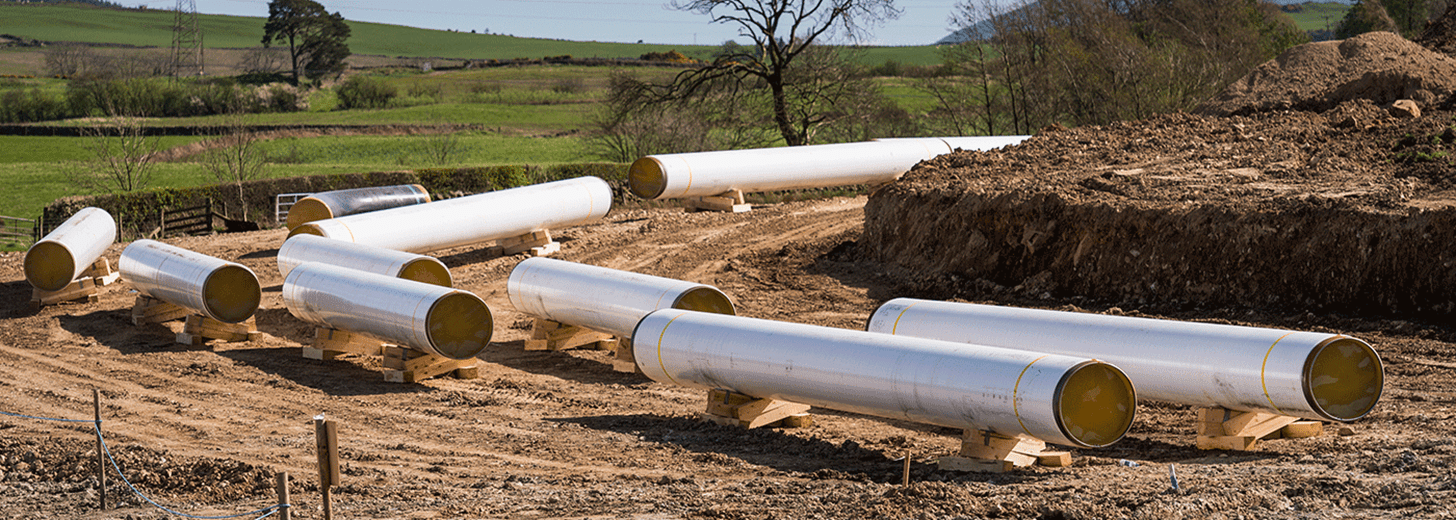Dealing with compulsory purchase can be complicated, emotional and draining. Those affected need calm heads and experienced experts on their side. Being affected by compulsory purchase will be among landowners’ greatest fears.
As the country embarks on more and more large-scale infrastructure projects, further land take is inevitable, and families and businesses in rural locations – even those situated far from large population settlements – are becoming increasingly affected.
Until quite recently, compulsory purchase powers were used fairly infrequently but, particularly since the credit crunch, there has been rare consensus across virtually all political parties that investment in infrastructure is essential to improve productivity. The land assembly to support this enthusiasm for big infrastructure projects is underpinned by compulsory purchase.
The phrase compulsory purchase has become a catch-all for a variety of instruments through which land and property can be obtained.
These include an Act of Parliament, such as that used to authorise compulsory purchase orders for the High Speed 2 rail link, or a transport and works order, which is typically used for railway schemes. A Development Consent Order (DCO) is used to authorise powers for Nationally Significant Infrastructure Projects (NSIPs) such as roads and power stations.
DCOs were introduced by the Planning Act 2008 and provide a one-stop shop for both planning permission and compulsory purchase powers for major schemes. They can be applied for by government agencies, such as Highways England, or private institutions such as Heathrow Airport Ltd.
Regardless of who is making the application, Carter Jonas has a team of experts working for both claimants and those acquiring land under CPO powers, providing a broad, holistic understanding of the nature of negotiations.
THE IMPORTANCE OF ENGAGEMENT
“There is an underlying sense of injustice when you are told your property or business is going to be taken away,” said Mark Warnett, partner at Carter Jonas. “The objective has to be to try and get through the sense of outrage, which I see from most clients when they first discover that they may be impacted. It can be an incredibly emotional experience but those affected must try and compartmentalise that anger and upset in order to make sound business decisions."
Such decisions often come from early engagement. The ultimate sanction is notice being served on an individual or business which gives them three months’ notice to leave. Mark says claimants should start engaging with the process as soon as they learn about potential compulsory purchase of their property, and begin planning to ensure that they are ready to take any appropriate action.
“There are a number of questions you need to ask yourself, particularly for rural property,” he said. “Is the correct ownership structure in place if the business has to sell? Are there succession issues which need resolving? Are there tenancy or occupancy restrictions which need reorganising? What are the tax implications?”
A lack of detail at the outset of a project is not uncommon. Much of the crucial detail about how the scheme will be executed may not be made available until late on. But that shouldn’t stop claimants from beginning the discussion.
Mark explained: “Taking the example of a road scheme being promoted by a DCO, there are usually two consultations where more detail will be released, and that’s where claimants need to engage. Putting in a consultation response, outlining how you may be impacted, means the authority applying for compulsory powers should take those into consideration. As it gets closer to the application for a DCO, the authority should be seeking to avoid compulsory purchase by opening negotiations over compensation and acquisition by agreement. That’s the prime time to be opening discussions on compensation and mitigation measures to reduce the impact on any retained property – noise barriers, for example. At this stage, the onus is on the authority to make the running in their application, so you engage through early consultation and, later, through the DCO examination, and then it is for them to demonstrate that they deserve to be given the powers. Usually, authorities will try and negotiate objections away – which can’t always be done – but it’s a good opportunity to reach settlements, if that is the objective. If you are forced into a complete relocation, you need time to do that. If you engage, you give yourself a window of time to be able to think about your options, and to prepare. There will be a lot of complications and you need the technical understanding to resolve them, as well as having a practical mindset of being a deal-doer.”
COMPENSATION
Property acquired under a CPO or DCO is at market value or, if the property is retained, the owner is compensated for the reduced value of the asset and can claim compensation for the dispossessed land.
“It may be possible to get the authority to buy the whole farm or estate, even if not all of the land is affected,” Mark explained, “but it’s on a case by case basis. We are working on a case at the moment for a rural business where we’re trying to reach a settlement on a land swap to mitigate the impact of the scheme on the business. If we can’t agree that, we will be looking to compel the authority to acquire the whole business.”
HIRING IN EXPERIENCE
“We typically get involved with clients as soon as the scheme is on the horizon, in order to forward plan,” Mark said. “We make representations and objections, carry out valuations and negotiations and, if an agreement can’t be reached, we also offer dispute resolution and expert witness evidence, should the case be referred to the Lands Chamber.”
Mark says the majority of clients prefer to settle before reaching the dispute stage. “Coming to an agreement before possession is taken is often preferable to waiting and being paid compensation,” he explained. “If you are negotiating outside the Compensation Code, claimants can ask for more than just financial recompense. In theory, anything could be on the table to reasonably mitigate the impact of the scheme during these negotiations, for example we have negotiated land swaps, accommodation works and legal agreements including protective provisions but that disappears when the discussion moves to compensation, which is purely financial.”
PERSONAL EXPERIENCE
Carter Jonas has built a team of experts who work across the firm’s infrastructure and rural practice. Working alongside Mark, Simon Mole, Steve Drennan and Charles Hardcastle are all agricultural valuers, as well as specialists in compulsory purchase, bringing vital insight from what are both highly technical areas of work.
“The majority of the partners in the infrastructures team come from a rural surveying background. We offer experience and knowledge in both those areas, and we’re the only compulsory purchase team with that level of experience,” Mark said. “Unlike many agents, we act for both acquiring authorities and land owners, and have gained a lot of knowledge and insight in how these deals work from both sides.”
Mark’s drive to specialise in this particular area stems back to a road scheme affecting his parent’s farm in north Kent when he was a teenager.
The development of the Wainscott Bypass meant that about 10 acres of the 200-acre fruit and arable farm was acquired through compulsory purchase. Compensation was paid for a large soil bank, which was re-invested into the business to make improvements to its future resilience and profitability. But Mark says the implications went further than just land take. He said: “We used the compensation to enhance some old buildings and convert them to light industrial use, and the road made us much more accessible and therefore attractive to tenants. In a purely business sense, we benefited – but the quality of life has been impacted forever. The new road meant that the farm went from having a rural feel to an urban feel – the noise was incessant and you could no longer see the stars because of the light pollution. It became a very different environment to live in.”
Watching the project take place demonstrated to Mark the importance of maintaining a good working relationship with contractors and those executing the CPO. “The farm has Grade 1 and Grade 2 soils so my father was outside watching the digger operators every day, making sure all the method statements were being followed; otherwise the quality of the soil would have been ruined,” he said. “My father needed a relationship not only with the contractors, but also with the authority’s agents and officers. Like it or loathe it, they were the ones making decisions every day that was going to affect the family forever.”
Get in touch with one of our team if you have any questions, or wish to share your stories.
To read more articles like the one above click the link below to download the full publication.
We have a lot of great stories to tell in this Autumn/Winter 2019 issue. But in a time of such political uncertainty, all we can do is concentrate on what we know. Articles featured in this issue include the true value of estate management, how a mixed farm in Yorkshire is making best use of renewable energy, the impact of biodiversity for landowners, the cloud of Brexit and its impact on auctions, information about compulsory purchase, and much more.
Latest news
- DEFRA has today opened the Improving Farm Productivity grant
- Carter Jonas Reports Half Year Results for 2020
- Carter Jonas Strengthens Rural South West Team With Senior Appointment
- Battery Energy Storage
- Carter Jonas signs-up to Time to Change initiative
- Raft of Promotions at Carter Jonas
- Carter Jonas Achieves Gold Investors In People Accreditation
- Newbury Straw Sale met with Selective Trade as Spring Approaches
- Newbury Straw Sale met with buoyant trade






